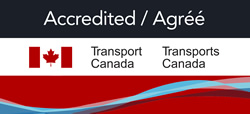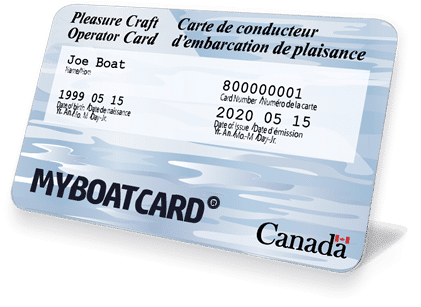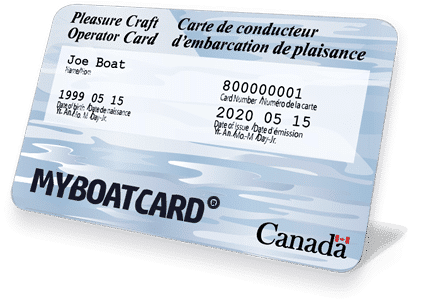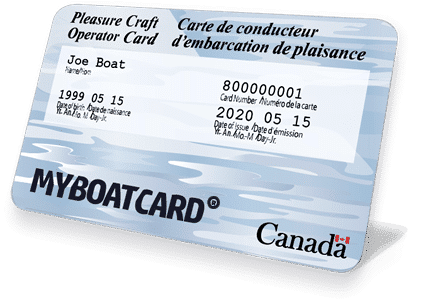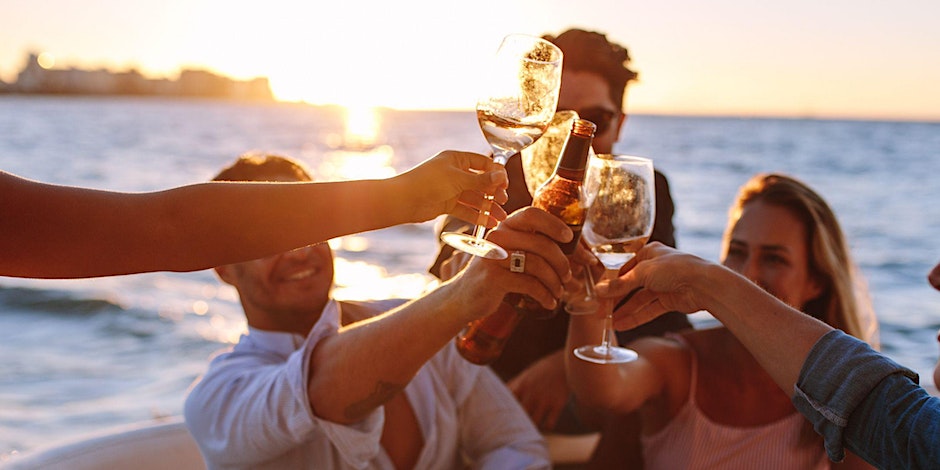
Whether you’re cruising or sailing in Canada, it’s important to be aware of the laws regarding alcohol consumption on boats.
Each province in Canada has its unique set of laws and regulations. In this article, we’ll answer some of the most frequently asked questions about drinking on boats in Canada and explain the rules and penalties for violating them.
Table of Contents
Can You Drink on a Boat in Canada?
Under the Criminal Code of Canada, consuming or having open alcohol containers on private boats is illegal, unless the specific conditions below are met.
Boat passengers may legally consume alcohol within accepted limits only if the boat:
- has permanent cooking facilities.
- has a permanent sleeping area;
- has a permanent toilet (a portable toilet does not count); and
- is moored to the dock, at anchor, or beached (not in motion).
Under the Criminal Code of Canada, it is an offence to operate a boat if you are impaired by alcohol or drugs (including cannabis).
The same rules that apply to drinking and driving on land also apply to boating.
If your Blood Alcohol Concentration (BAC) exceeds 80mg or 0.08%, you are considered over the legal federal limit for operating a boat. BAC levels are measured with a breathalyzer or blood test.
Additionally, it is illegal to operate a boat if you have a blood concentration of 2-5 nanograms (ng) of tetrahydrocannabinol (THC) per ml of blood, or a combination of 50 mg of alcohol per 100 ml of blood and 2.5 ng of THC per ml of blood.
Canada Alcohol and Boating Laws
Under the Criminal Code of Canada, it is an offence to operate a boat if you are impaired by alcohol or drugs (including cannabis). It is the same offence as operating a motor vehicle while impaired.
It is illegal for both the operator of the vessel and the passengers from consuming alcohol while the boat is in motion.
Can the Operator of the Boat Drink in Canada?
Under Canadian law, the operator of a boat is not allowed to consume alcohol while the boat is in motion. This includes any type of boat, whether it’s a motorized vessel or a sailboat. If you’re caught operating a boat while impaired, you could face criminal charges and fines.
Can You Drink on a Boat If You're Only a Passenger?
Boat passengers in Canada can legally consume alcohol within accepted limits only if the boat:
- has permanent cooking facilities;
- has a permanent sleeping area;
- has a permanent toilet (a portable toilet does not count); and
- is moored to the dock, at anchor or beached (not in motion).
Passengers on boats in Canada can only consume alcohol in small amounts. They still have to be below the legal blood alcohol concentration (BAC) limit of 80 mg per 100 ml (0.08%).
Can Police Stop and Search Your Boat for Alcohol in Canada?
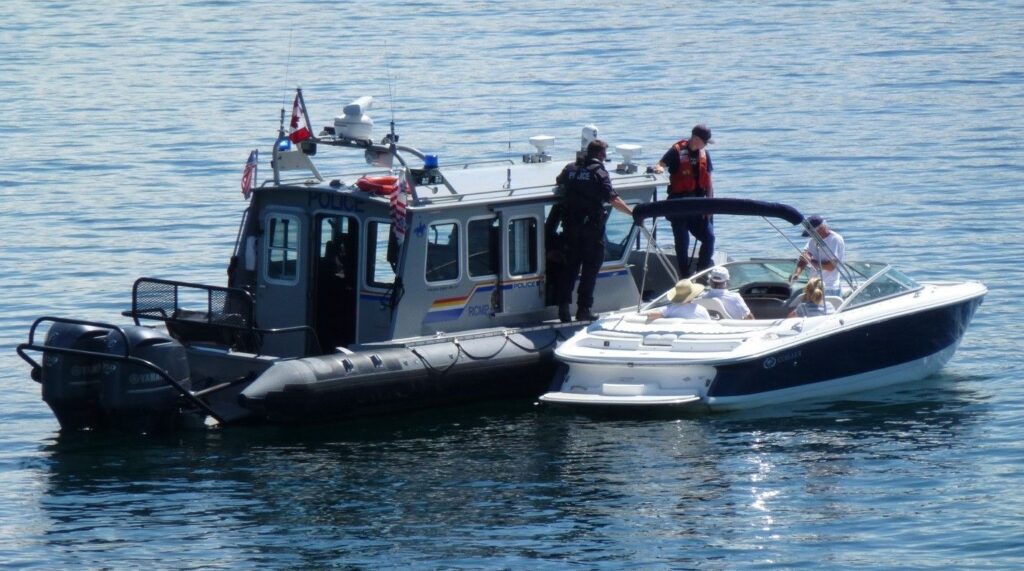 Yes, police officers (enforcement officers) in Canada have the power to stop and search boats for alcohol. If you’re stopped by the police, you’ll be required to provide identification and proof of ownership of the boat.
Yes, police officers (enforcement officers) in Canada have the power to stop and search boats for alcohol. If you’re stopped by the police, you’ll be required to provide identification and proof of ownership of the boat.
The police may also ask to search the boat for alcohol or other illegal substances. If they find alcohol that is not being transported or consumed in compliance with Canada’s Criminal Code or the province’s own regulations, they could issue fines or other penalties.
Enforcement officers may:
- Ask for ID;
- Ask for proof of competency (permanent or temporary PCOC);
- Ask any pertinent questions;
- Board your vessel; and
- Examine a vessel and its equipment.
An enforcement officer can be:
- A member of the Royal Canadian Mounted Police (RCMP);
- A member of the harbour or river police;
- A member of provincial, county or municipal police force; and
- Any person designated by Transport Canada.
What are the Fines for Drinking Alcohol on a Boat in Canada?
Under the Criminal Code of Canada, the penalties for operating a boat and operating a car under the influence are the same.
Fine for drinking on a boat:
$230 – fine for drinking alcohol on a boat that does not have a permanent sleeping area, cooking facilities, or toilet. Or the boat is in motion (not docked or anchored).
The penalties for operating a boat under the influence (impaired boating) in Canada include:
- 1st offence: Mandatory minimum $1000 fine; Maximum 10 years imprisonment
- 2nd offence: Mandatory minimum 30 days imprisonment; Maximum 10 years imprisonment
- 3rd offence: Mandatory minimum 120 days imprisonment; Maximum 10 years imprisonment
Many provinces and territories have additional impaired boating penalties. The maximum impaired fines & penalties will vary by province.
Please think about the seriousness of these penalties before you ever drink and boat.
Can You Transport Alcohol on a Boat in Canada?
Yes, it is legal to transport alcohol on a boat as long as it is either sealed or stowed away in a closed container.
Can You Have Closed Alcohol on a Boat in Canada?
Yes, boaters are allowed to have unopened containers of alcohol on their boats in Canada, but there are still rules about how it must be transported and consumed. Unopened containers of alcohol must be stored in a secure area, such as a locked cabinet or cooler.
Can You Drink Beer and Fish on a Boat?
Passengers can drink a small amount of alcohol (Blood Alcohol Concentration below .08%) on a boat in Canada, if the boat has permanent cooking, sleeping and toilet facilities. The boat must also not be in motion. It must be either moored to the dock, anchored or beached.
It’s important to remember that drinking and fishing can be a dangerous combination. Alcohol can impair your judgment and reaction time, making it more difficult to react to changing conditions on the water. In addition, fishing requires concentration and focus, which can be compromised by alcohol consumption. If you’re planning to fish on a boat, it’s best to avoid alcohol altogether.
Cannabis / Marijuana on a Boat in Canada
In addition to alcohol, it’s important to be aware of the rules surrounding cannabis use on boats in Canada.
Since 2018, cannabis has been legalized and regulated under the Cannabis Act (Bill C-45). The regulations are similar to those for alcohol, such as restrictions on carrying cannabis on a boat unless the boat is being used as a temporary or permanent living space.
Similar to alcohol, consumption of cannabis (through smoking, vaping, or eating) is illegal in a moving boat. The boat must be anchored, moored or beached.
Boaters can be subject to drug recognition techniques to establish their impairment status by law enforcement officials. They may also be asked to submit a blood, urine, or oral fluid sample for testing.
- THC concentration of 2-5 nanograms per ml of blood could result in a fine of up to $1,000.
- THC concentration exceeding 5 nanograms per ml of blood (or above 2.5 nanograms coupled with a blood alcohol concentration over 50 milligrams) could be subjected to both fines and jail time.
Laws For Drinking And Boating By Province
In Canada, provinces can apply supplemental laws to the Criminal Code of Canada, for impaired boating.
Alberta
In Alberta, penalties and fines for operating a boat while intoxicated are the same as those for driving a car while intoxicated.
Remember, the law makes no distinction between driving while drunk and boating while drunk.
In Alberta, boats that have a permanent toilet, cooking, and sleeping facilities are allowed to have alcohol consumed on them, but only if the boat is securely anchored, moored, or beached.
As of December 1, 2020, in Alberta, if convicted of impaired boating:
- you will receive an immediate 90-day license suspension and an additional one-year driving suspension where you must participate in an Ignition Interlock Program if you wish to drive again;
- your boat will be seized for 30 days and you’ll need to participate in a ‘Planning Ahead’ course; and
- a 20% victim fine surcharge will be added to the $1,000 fine.
For further details on boating and alcohol regulations in Alberta, reach out to the Alberta RCMP.
British Columbia
The penalties for impaired boating in British Columbia are the same as those for impaired driving.
The province’s fines and suspensions are more stringent than the federal penalties. A BAC reading up to .049 may result in a 12-hour driving prohibition if you’re in the Graduated Licensing Program, and you’ll start your 24-month N license period over.
Under the B.C. Government Liquor and Cannabis Regulation Branch (LCRB), the same rules that prohibit driving a motor vehicle while impaired also apply to boats. Drunk driving and drunk boating are the same.
BC law permits the consumption of alcohol on boats that are not in motion (anchored, docked, or beached) and equipped with:
- Permanent toilet; and
- Permanent cooking facility; and
- Permanent sleeping area.
Contact the British Columbia RCMP for more information on the laws of boating and alcohol in the province.
Manitoba
In the province of Manitoba, facing charges for operating a boat while impaired carries the same penalties as impaired driving.
Drink driving is the same as drunk boating.
In Manitoba, a suspected drug or alcohol impairment can result in a 24-hour roadside suspension.
Alcohol consumption is only allowed on boats in Manitoba when the boat is stationary, either anchored or docked, and the boat has a permanent toilet, cooking, and sleeping facilities.
For more insights into Manitoba’s boating and alcohol laws, contact the Manitoba RCMP.
New Brunswick
New Brunswick law states that the penalties for impaired boating are the same as those for driving a vehicle while impaired.
The Motor Vehicle Act in New Brunswick implements more stringent impaired driving regulations than those set by federal standards.
If a driver’s BAC is between .05 and .079:
- First offence incurs a 7-day license suspension.
- Second offence incurs a 15-day suspension.
- Third offence in five years results in a 30-day suspension, a license reinstatement fee, and mandatory involvement in a drinking driver education course.
If your boat in New Brunswick comes with permanent facilities for sleeping, cooking, and a toilet, then alcohol may be consumed on the boat, but only when the boat is either docked, beached, or anchored.
For additional details about boating and drinking laws in New Brunswick, contact the New Brunswick RCMP.
Newfoundland and Labrador
Newfoundland and Labrador has the most stringent impaired driving laws of any province in Canada.
Drivers below the age of 22 are required to maintain a zero BAC when driving, and convictions can be made for BAC levels exceeding .049.
Under Newfoundland and Labrador’s regulations, the fines and penalties for impaired boating are the same as those for driving a vehicle under the influence.
Boat passengers can consume alcohol on board a boat in Newfoundland & Labrador if the boat has a permanent toilet, cooking facilities, and sleeping facilities. The boat must also be anchored, beached, or docked.
Contact Newfoundland and Labrador RCMP for more information about alcohol and boating laws in the province.
Northwest Territories
In the NWT, there is no legal difference between drunk boating and drunk driving. The penalties and fines are the same.
Boat passengers in the Northwest Territories can consume alcohol onboard if the boat has built-in sleeping, cooking, and toilet facilities, but only while the boat is beached, anchored, or docked.
Drivers under the age of 22 are not allowed any alcohol or drugs in their system while driving or operating a boat.
For more information on NWT’s alcohol and boating regulations, contact the Northwest Territories RCMP.
Nova Scotia
The province of Nova Scotia enforces identical fines and penalties for boating under the influence as it does for driving under the influence. The legal system treats drunk boating the same as drunk driving.
Boat passengers may only consume alcohol on a boat in Nova Scotia if the boat is anchored, docked, or beached. Additionally, the boat must be equipped with permanent sleeping, cooking, and toilet facilities.
A first offence of impaired boating within a 10-year period will result in:
- a fine of $600 to $2,000;
- a one-year license suspension from the date of conviction;
- a mandatory addiction assessment program;
- license reinstatement fee;
For additional information regarding boating and alcohol laws in Nova Scotia, consult the Nova Scotia RCMP.
Nunavut
Nunavut’s legislation imposes the same penalties for operating a boat while intoxicated as it does for driving a vehicle intoxicated.
In Nunavut, if a boat is fitted with permanent facilities for cooking, sleeping, and a toilet, alcohol is allowed to be consumed onboard, but only when the boat is anchored, docked, or beached.
Drivers under the age of 22 are not allowed any alcohol or drugs in their system while operating a boat.
For further clarification on boating and alcohol laws in Nunavut, contact the Nunavut RCMP.
Ontario
In Ontario, the penalties and fines for boating under the influence are the same as those for driving a vehicle under the influence.
Boat passengers may legally consume alcohol on board a boat in Ontario if the boat:
- has a permanent toilet; and
- has permanent cooking facilities; and
- has permanent sleeping facilities; and
- is anchored, docked, or beached.
Under the Ontario Liquor License Act, an opened container of alcohol is prohibited on board a boat (except for the scenarios outlined above).
In Ontario, if you are convicted of boating under the influence you can also have both your boating license and your driving license suspended. Ontario’s Ignition Interlock Program may also be installed in your boat.
In the event of a criminal conviction in court: a first offense would result in:
- a one-year suspension of both your boating licence and driving license;
- mandatory participation in an education or treatment program;
- required use of an ignition interlock device for one year; and
- a medical evaluation.
Contact the Ontario Provincial Police (OPP) for more information about the alcohol and boating laws in Ontario.
Prince Edward Island
In Prince Edward Island, the fines and penalties for impaired boating are the same as those for impaired driving. Drunk boating is the same as drunk driving.
The Highway Traffic Act of Prince Edward Island (PEI) includes penalties for impaired driving offences that extend beyond those in the Criminal Code of Canada.
A first-time conviction for impaired driving in PEI results in a one-year license cancellation, accompanied by a reinstatement fee of $750. Additionally, the installation of an Ignition Interlock Device is mandatory for the duration of one year.
Boat passengers can legally consume alcohol on board a boat in Prince Edward Island if the boat has a permanent toilet, cooking facilities, sleeping facilities, and the boat must also be anchored, docked, or beached.
For more information about boating and alcohol laws in Prince Edward Island, please contact the Prince Edward Island RCMP.
Quebec
In Quebec, penalties for operating a boat while impaired are the same as those for driving a motor vehicle while impaired. There is no legal difference in Quebec between impaired boating and impaired driving.
Boat passengers may only consume alcohol on a boat in Quebec if the boat is anchored, docked or beached. Additionally, the boat must be equipped with permanent sleeping, cooking and toilet facilities.
Arrest under Quebec’s impaired boating laws, would result in:
- Immediate licence suspension: 24 hours or 90 days (depending on the situation); and
- Immediate boat seizure and impoundment: 30 days (depending on the situation)
For further information about the laws governing boating and alcohol in Quebec, please contact Sûreté du Québec (SQ).
Saskatchewan
In Saskatchewan, the fines and penalties for driving a boat while under the influence of alcohol are the same as those for operating a motor vehicle under the influence.
Boat passengers may legally consume alcohol on board a boat in Saskatchewan if the boat:
- has a permanent toilet; and
- has permanent cooking facilities; and
- has permanent sleeping facilities; and
- is anchored, docked, or beached.
In Saskatchewan, a conviction for impaired driving will result in your boating and driving license being suspended until your case goes to court.
For a conviction involving impaired driving with a Blood Alcohol Concentration (BAC) below .16, there is a 30-day boat impoundment. However, if the BAC is higher than .16, the duration of the boat impoundment extends to 60 days.
For more detailed information on boating and alcohol laws in Saskatchewan, contact Saskatchewan’s RCMP.
Yukon
Yukon imposes the same penalties for operating a boat under the influence as for driving a motor vehicle while intoxicated.
Remember, there is no legal difference in the Yukon between drunk boating and drunk driving.
If an officer has reasonable grounds to suspect impaired boating, they have the authority to suspend your license for 24 hours and to impound your boat.
In the Yukon, if your boat has permanent sleeping, cooking, and toilet facilities, you may consume alcohol on board, but only when the boat is beached, anchored or docked.
For more detailed information about boating and alcohol laws in Yukon, contact the Yukon RCMP.
Alcohol and Boating Deaths in Canada
According to the Drowning Prevention Research Centre, more than 40% of recreational boating deaths in Canada are caused by alcohol consumption.
The Effects of Alcohol While Boating
Alcohol’s effects on boat operators are often more pronounced than they realize due to environmental stressors. Even a small amount of alcohol can greatly affect a boat operator’s abilities, as it impairs judgment, diminishes motor skills, and hampers reaction times. Additionally, alcohol reduces the body’s resistance to cold, accelerating the onset of hypothermia.
Some of the effects of alcohol include:
- Increased risk-taking
- False sense of security and control
- Difficulty maintaining control
- Difficulty concentrating
- Poorer depth perception, vision, and focus
- Reduced balance – with a greater risk of falling overboard
- Slower reaction times
- Poor coordination
- Drowsiness
- Accelerated onset of hypothermia
The sun, wind, noise, vibration, and movement experienced while boating contributes to a condition known as boater fatigue, which can amplify the effects of alcohol by up to four times. Moreover, dehydration caused by heat and sun exposure increases the rate at which alcohol is absorbed into the system, further impairing the operator’s performance.
Be Safe, Get Certified.
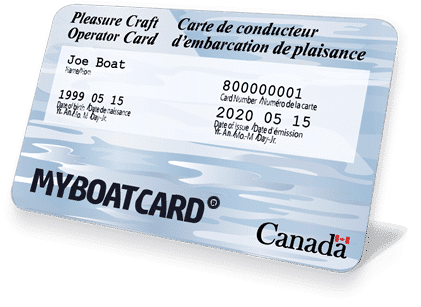 It is illegal to operate a powered boat in Canada without a boating license (or other proof of competency), and the fines for doing so can be significant. Additionally, obtaining a boating license is a good way to ensure that you are operating your boat safely and responsibly.
It is illegal to operate a powered boat in Canada without a boating license (or other proof of competency), and the fines for doing so can be significant. Additionally, obtaining a boating license is a good way to ensure that you are operating your boat safely and responsibly.
By completing a boating safety course and obtaining your boating license, you can gain the knowledge and skills needed to operate a boat safely, protect yourself and others, and avoid costly fines. If you want to test your knowledge – why not try out the free boating license practice test.
With the convenience and affordability of MyBoatCard.com’s online course, there is no reason not to get your boating license today.
Join the over 2 million certified Canadians, and get your Canadian boating license today!
